Welcome to the second installment of “Sexism & Season 6,” which focuses on tackling the horrifyingly common misconception that Game of Thrones (GoT) is somehow a feminist’s dream. Or even a remotely progressive narrative. That showrunners David Benioff and Dan Weiss, along with their writing team (all referred to under the monolithic “D&D”) somehow “fixed” their “woman problem” this year, the problem that had been plaguing the HBO Series basically since its inception.
See, there’s this vague sort of consensus that women had their way this year!

The “dames of Thrones” were boss ass individuals who did not put up with those foolish men, and often as a result, found themselves in positions of power. Ellaria murdered Doran the “weak man” with the backing of all of Dorne, Daenerys and Yara made a queenly alliance centered on the promise that they’d rid the world of idiot dudes who don’t think women should rule, and Sansa actually found recourse against her rapist by murdering him.
Yara: We’d like you to help us murder an uncle or two who don’t think a woman’s fit to rule.
Daenerys: Reasonable.
Reasonable.
Then add to that the wonderfully intelligent Tyrell ladies, the wonderfully sassy Tarly ladies, and the wonderfully badass fighters in characters like Arya and Brienne. With all these strong female characters battlin’ the patriarchy, it seems like GoT’s “Women on Top!” marketing campaign was quite on the nose!
Except if you think about any of it for more than two seconds.
I already spoke in Part 1 of this essay series about how D&D’s setting has no sort of internal consistency and simply adapts to the needs of a scene. For that reason, there’s no way women (or anyone) can truly triumph and find themselves “on top,” since what they’re on top of is utterly meaningless. These are hollow victories, and frankly the focus that it’s now “women on top” comes across as nothing more than pandering, given the completely superficial exploration of gender dynamics this series offers.
In this section, however, I would like to focus on the actual scripting of the female characters. Because even if we pretend, just for a second, that their achieving power does have feminist takeaways beyond seal-clapping at their shiny crowns, it doesn’t change that the way they’re penned is strikingly sexist.
I’d say “surprisingly,” but I’ve also been saying this since before Season 6 began:
I don’t really want to shock anyone, but these multitudes of “strong women” simply don’t exist.
In the linked essay, I brought special attention to the characters of Dany, Brienne, Sansa, Margaery, and Myranda’s, and how through the past year, their scripting was not only not empowering, but quite offensive. And this was all after I painstakingly went through all of Season 5 to detail the primary sexist tropes D&D employed in the writing of all their characters.
Now this is not to say it couldn’t have gotten better in Season 6, of course. I’m just here to explain to you why it didn’t.
I think I’ll open with Dany, because “Khaleesi” is the face of female empowerment in modern media, isn’t she? I mean she’s a queen with dragons who hates slavery; how awesome is that?!
Not that I’m defending slavery, of course.

Like, we can agree that this is a pretty dang low bar, yes?
Dany this year was interesting, because she sort of had a two chapter journey, if you will. The first chapter involved her navigating her captivity by the Dothraki, whereas the second chapter involved her return to Meereen to handle the situation with the slavers and make plans for the future.
This is where it becomes difficult not to retread ground with Part 1, because the utterly contrived nature of how the Dothraki treated her is part and parcel of the mystifying way in which she navigated it. But we just have to accept certain things, most importantly including the Dosh Khaleen’s magically disappearing authority within Vaes Dothrak.
I’m quite certain D&D meant for us to find Dany rattling off her titles to the khal in “The Red Woman” to be an empowering moment. After all, he was telling her that he’d rape her, and she had an ace in her pocket about why she wouldn’t. Except that…why didn’t she say this at the get-go? Does she live for the rush of high risk situations? I’m not trying to say that a character withholding information that would benefit her is definitive proof that the scripting is sexist, but what I am saying is that it betrays entirely a lack of care about the characters, and it’s all in favor of creating false tension and cheap moments of victory. In other words, it’s this facade of “women on top” when what we should be questioning is why she was on the bottom in the first place.

There’s also the issue of characters deciding to do everything off-screen. Yes, this allows for “reveals,” but when absolutely nothing is seeded to preserve the shock, what follows feels random. How are we supposed to have any grasp on a character when we don’t see them struggling or planning? Dany fell further victim to this in “Book of the Stranger,” the episode where she decided to burn down Vaes Dothrak. For profit. When did she formulate this plan? During her pee break with the other former khaleesi who seemed to like the idea of avoiding rape? Did Dany know that the Council of Khals (the suddenly existing legislative body of Vaes Dothrak) would decide her fate at night, that there’d be braziers in this tent, and that the dirt would be magically flammable?
The point I’m making is that her Empowered Moment falls apart with a minimal level of scrutiny. And even if we somehow manage to ignore the multitude of contrivances required for it to take place, there’s the problem of take-away. If the Council of Khals was supposed to make us feel as though this was Dany’s only way out, that was completely undercut by Daario and Jorah showing up and offering her escape in the scene prior. If we were supposed to believe that this was the “best course of action” because the khals were such a danger to her, then why were there no threats against Dany (and it seemed like they were going to allow her to join the Dosh Khaleen, the supposed ruling class of the Dothraki) until after she started insulting the khals by saying they were weak and only she was fit to rule
The only conclusion I can reasonably come to is that we were supposed to fist-pump for Dany’s actions because Dothraki culture is gross and rapey and this is the best course of action for *humanity*. So therefore D&D’s idea of female empowerment is a white woman, with a family history tied to slavery and conquest, standing proudly after destroying another culture’s holy place, while the brown people who had outright called her a “witch” dropped to their knees. I hate strawman rapists as much as the next person, but there were people who actually felt…good…about this?

Sorry, but white feminism is not empowering. Or feminism.
You know what else isn’t empowering? Having a female character whose only good ideas come from a dude. This was a trend with Dany that started last year, and boy howdy did it continue into Season 6. The second she got back to Meereen, she began formulating ideas involving mass murder, and what a good thing for all of us that Tyrion was there to talk some sense into her. So then the entire Battle of Meereen scenario was the enactment of his plan on how to handle the slavers, and let’s not forget, he’s the one who fixed her mistake of locking up Rhaegal and Viseron so that they could help lead her victory as well.
Then Tyrion tells Dany to dump Daario and she does (though empowerdly not having emotions about it, because emotions are so weak). And of course when she and Yara, two women in positions of power, hash out terms of an alliance, we’re treated to this moment:

Oh well, at least Yara listens to her dudes as well:

And yes, people listening to advisors is fine, but it’s the pattern. A pattern which in the case of Dany, is completely infantilizing. I guess the best that could be said is that without her men, she’d have still won the loyalty of the Dothraki this year? But then we have to remember why it is that people who just saw their holy place get burned down by a witch would pledge their loyalty in the first place…

There’s one last thing about Dany’s scripting that I think is a bit of an elephant in the room, because it involves dreaded *book knowledge*. I’m all for ending the conflation of GoT and A Song of Ice and Fire, but it’s rather impossible for me not to notice that Tyrion’s plotline this year was Dany’s plotline from “A Dance with Dragons.” Like, they jettisoned her out of her own arc, and literally retconned developments away so that Tyrion could have her ADWD plot-points to tackle. Hizdahr’s deal with Yunkai and Astapor? Gone. The navy Daario won for Dany? Oh no, a random fire! Granted, everything he did doesn’t quite line up to the books since the show presents us with a ridiculously simplified situation, but it really does feel as though a woman was shoved aside and put in a position to be a prisoner of strawmen so that they could carry out her plotline with their preferred protagonist, a white dude.
Yikes, I had more to say about Dany than I realized. I guess it’s just all that empowerment! But I do think it’s an important exercise to demonstrate how just because a woman wins victories and is a ruler in her own right, it’s not automatically progressive.
Same goes for this idea that if a woman is badass, then that’s that—it’s a feminist victory!
Arya is really the perfect example of that this season. Granted, her plotline actually came under major scrutiny when her plot armor rivaled that of James Bond’s in Live and Let Die. I do have to think the sheer ridiculousness of her survival detracted a little from her “badass” status, though aside from these complaints and perhaps a few grumbles about her season finale teleportation, I’ve heard little criticism levied at her scripting.

Arya in and of herself I think is supposed to be a slightly disturbing character, right? Like, her overly violent murders of Trant last year and Walder Frey this year were supposed to be at least a little morally ambiguous? It’s hard to tell, because D&D went out of their way to paint both men as incredibly disgusting and “bad,” but I just don’t think I can imagine anyone who would be able to write or direct those scenes with the intent of them being 100% fine, fist-pumping moments of awesome.
Okay…maybe two or three names spring to mind.
However, the curious thing about Arya is that other than when she pops up to carry out these grisly executions, she’s actually quite passive. This was the case last year, and certainly continuing into this year, where a good chunk of her episodes revolved around being smacked with a stick. Even after she got her eyes back, we see more stick smacking. Then she was assigned to kill an actor and was so bad at her job that her mark ended up noticing her and they developed a friendly rapport. The one proactive decision Arya made was to not kill Lady Crane, which like, okay, I could totally buy doing that not jiving with her moral code, I guess. And then the plot required her to be stupid and go from sleeping with Needle drawn to smirking her way around Braavos:

The rest was simply parkouring to victory.
Even despite her very passive scripting, all if this might have been somewhat forgiven if it weren’t for D&D’s mystifying pattern of injecting catty women into every corner of Braavos. I’ve explained the sexist underpinnings of this trope before:
[“Women are Catty”] is based on the assumption that women are always in competition with one another, because their mode of operation is based around getting a man. With intimate heterosexuality being needed to complete them, exclusive male attention becomes their ultimate goal, inherently pitting them against other women who are vying for the same thing. If a man strays from his woman, it is her fault, because she lost out to another woman. And of course, women are not mature enough to snap out of this dynamic, unlike “bros before hoes.”
In my opinion, there’s really no way to reconcile the character of “The Waif” in GoT. What is her problem?! The best explanation is that she has a thing for Jaqen and feels threatened, but this is a woman who simply hates Arya. She smacks her with sticks repeatedly, and the one time Arya counters her blow, angry tears fill her eyes. Then we learn after Arya bails on her contract that The Waif had asked Jaqen for special permission to murder her in the case of such an event. And wow, does she skip off to do so with glee:

Swiggity swooty, off to kill that booty.
Maybe this wouldn’t have seemed quite so awful if it weren’t for the fact that Jaqen is presented to us as the voice of reason between the two? He’s the one who brings Arya back to the temple, he’s the one who grants her the eyes, he’s the one who gives her another chance, he’s even the one who after the killy-conclusion of their confrontation, gives Arya a bizarre Nod of Approval. Fighting is for the women, reconciliation is for the men.
Add to this the weird rivalry within the theater troupe, where the Sansa actor was very clearly the one who hired the Faceless Men to kill Lady Crane because jealousy, and Lady Crane in turn mutilated her.
What makes this worse is that I almost was won over by the positive interaction with Lady Crane and Arya because that’s how lacking it is on this show, but it was unfortunately overshadowed by Crane’s disturbing trait of stabbing ex-lovers and then, of course, her graphic Shock™ death, demonstrating that positive female interaction on this show is only to tug at the heartstrings.
But whatever, we can tell Arya is a badass because she pops in to murder people in season finales with inexplicably honed skills that we were never shown before. What were we shown instead?
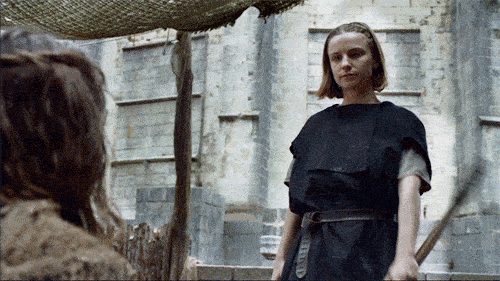
Brienne is another character that you can tell is meant to be a Certifiable Badass because she like, carries a sword or something? And it was nifty of her to save Sansa and Theon from the disappearing hounds when she magically realized that they must have left Winterfell.

However past that, we were treated to another season of her failing at her mission. What was the point of her going to Riverrun, exactly? For a fanservice moment with Jaime that was immediately followed by the scene of him declaring his undying love to Cersei? Brienne failed to secure the Tully army, and failed to even convince Brynden Blackfish to personally help out his niece.
A few tweaks and this show could be so good, guys. Tumblr user “turtle-paced” pointed out in her review of “No One” how easily Brienne’s exchange with Blackfish could have been altered to A.) make us feel that Brienne is more than just a convenient sword, and B.) actually make us feel like this show is more than a series of discrete moments of random shocks:
Hey, remember when Catelyn dragged Brienne out of a perilous situation saying “fight for the living, not the dead”? Neither do I, it didn’t happen in the show. What show!Catelyn did say in that situation was “you can’t avenge Renly if you’re dead” which seems like advice that’s at least analogous to what’s going on here. Isn’t it neat that the adaptation made the space for a parallel where the beneficiary of that advice has a chance to pay it back to her dead advisor’s kin – oh. No. Brynden got killed offscreen.
Someone, oh someone, please explain to me how Brienne is supposed to be remotely interesting or empowering? She stalks around killing the people the plot requires her to kill and failing at everything else. Sometimes she gets hit on by Tormund as a joke.
I think our last of the Badasses™ is Yara.

She’s at least supposed to be battle-hardened and stuff, right? And here’s the thing: I was really close to being won over by her after “Home,” when she yelled at her dad about the futility of the reaving lifestyle and later seemed to want to be Queen not just because it was her duty, but because she felt she could elicit positive change.
Then she screamed at Theon for being too traumatized to come with her (back in Season 4) and coldly yelled at him to stop crying. Then she stood passively in the background of her own goddamn queensmoot and let Theon argue everything for her. Then she screamed at him even more for his trauma because it was inconvenient to her, and told him to kill himself if he wasn’t going to be useful. Then she raped a sex slave because she apparently didn’t care about the iron price anymore, nor the concepts of slavery and consent. Then she tried to argue against Dany outlawing raping because that was the Ironborn “way of life”—the same way of life she had argued against in the episode I just praised. Then, of course, it was time for her Nod of Approval from Theon.
So am I seriously supposed to see an abuser like Yara, who also can’t seem to argue her own cases and make her own decisions without the help of her brother, as an “empowered” woman? If so, may I ask why?
Speaking of women standing quietly in a corner and being ineffectual at everything they do, there was Sansa this year. That’s right, Ms. “Boss Ass Bitch” herself, according to Sophie Turner.

To be fair, there were a few scenes where Sansa really came out swinging. She whipped the letter from Ramsay out of Jon’s hands and read it in a cool, calm fashion. She met with Littlefinger and screamed in his face that his plan last year was stupid.
Those who voted in ballot for the upcoming “Carol Awards” know that I often joke about the many different personalities of Sansa, but does it really need to be pointed out this assertive, in-charge, has-a-totally-accurate-reading-on-the-situation sits in complete contention with the Sansa last year who agreed to the world’s worst plan without so much as a follow-up question because of some amorphous promise of revenge?
The good news, however, is that it doesn’t overly matter because after only a few episodes of this Boss-Ass scripting, Sansa was reduced to a character who would stand quietly in a corner while other people argued her case for her. She failed to persuade Lyanna Mormont and Lord Glover to help at all (as did Jon, to be fair), then she sat quietly fuming during a war strategy session when a few episodes prior, we had seen her speak up in the exact same situation. When she yelled at Jon for not calling on her, as if she was some school girl who wanted to present a report, she then claimed that she didn’t know anything. Then why were you upset? Plus Sansa also withheld crucial information about the Vale troops that cost some six hundred thousand of her countrymen their lives, only to be hand-waved away in the finale with an apology.
The one bright-spot of her scripting was that Jon fared even worse, so some critics praised her as the “smart one.” However, this also came undone in the final episode, when every single Northern Lord forgot about her claim despite the fact that she was sitting right there. And like, this could have been so easily fixed if Sansa had been the one to argue for Jon’s kingship (also because it would be an extra middle finger to Littlefinger). But no, that came from Lyanna Mormont, the 10-year-old girl with unquestioning authority who didn’t even consider the proper succession.

“Oh well, maybe next year.”
Sansa’s face at the end suggested that all of this was done for more tension. Once again, if she wasn’t for it, she could have spoken up. “Hey, how about a ‘Queen in the North’ instead? I’m literally Robb’s heir, and I’m the one who saved you. My doofus brother marched everyone into a trap.” Wait, did her voice stop working during this scene again?
Literally the only proactive thing Sansa did this season was write a letter begging help that she had already turned down from the dude who sold her to her rapist. And then afterwards when Littlefinger told her he wanted to marry her and co-rule Westeros, she called it a “pretty picture.”

I should point out that I am purposely going to save discussing the full implications of Sansa’s arc with Ramsay until Part 3 of this series: The Fallacy of Violence as Empowerment. However, given the fact that her murder of him was most certainly framed as the climax of her arc, and given the fact that it would have made far more sense for the Vale knights’ eleventh hour save had Sansa actually remained there the whole time (this would have avoided her weird and costly refusal to tell Jon about the troops), we need to take a moment to appreciate that Sansa was in fact displaced from her book-arc for nothing more than a two-season long revenge porn. She was raped in the most illogical context possible because the rape created two seasons worth of drama.
Even if we want to pretend this was a matter of D&D prioritizing Ramsay’s story over Sansa’s (which is very telling in and of itself), there’s the issue that the most important part of Ramsay marrying “a Stark” in the books was that he had the one thing Jon was willing to break his vows over—and at a great cost, ultimately. It’s why the Northern Lords outside of Winterfell were clamoring to get there as fast as possible, champing at the bit to go to war. To save “Ned’s little girl.” The Glovers weren’t praising the Boltons; Robett Glover was in White Harbor with Wyman Manderly trying everything they can to find Rickon Stark, while Sybelle Glover sent clansmen sworn to Deepwood Motte with Stannis to march on Winterfell.
What happened in the show though? D&D replaced that Stark hostage with Rickon, who was used only as a prop to die and make us feel bad. As for Sansa having married Ramsay, Lyanna Mormont held that against her. Aside from her, not a single person in the North gave any shits. Sansa in Winterfell affected nothing in the Northern theater other than motivating Theon to have a Stark-centric “redemption” arc that was punted out the window the second they needed him to head back to the Iron Islands, and spurring Sansa to become “strong” and “hardened,” because rape needed to be her teacher. That is never forgivable, and that is never feminist.
Hey, this is going to shock you, but you know one character who I unironically always have found feminist on this show? The character who was actually my favorite? Cersei. I mean it; this is not a bit of mine.
Now I should clarify, I 100% mean Show!Cersei here, because Book!Cersei has nothing to do with her. However, for the past few seasons, D&D have been telling a very consistent story of a woman who faces abuses, is very much shut out of power, and who sees her children fall victim to exploitative and dangerous situations. As a result, she does what she can with the recourse that she has. Arming the Faith was myopic, certainly, but by all accounts she was fooled by the High Sparrow who had been preaching tolerance and nonviolence up until that point.
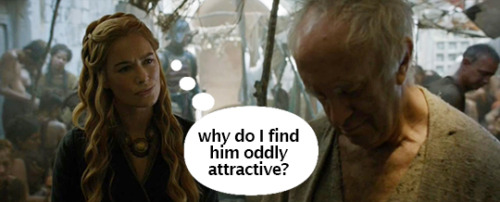
You can count the “bad” things Cersei has done on this show on one-hand and have fingers left over. From Season 4 on, you would still have five.
This season continued that narrative…until it didn’t. In fact, it continued that narrative in every single episode but the last one. We saw a Cersei who was continually put upon: she couldn’t go to her daughter’s funeral because her son had found her slutshaming effective, she was barred from contributing to the Small Council, she was sent to stand in the galley while her son delivered an announcement for the crime of being a woman… Heck, even when she “chose violence” it was because a group of armed bullies wanted to drag her out of the Keep for no apparent reason—though she really did luck out that the High Sparrow was apparently never told about this (or else why was he mystified when she didn’t come to her trial?).
And then she blew everything up and didn’t bother to check on how this might affect her son.

The weirdest part is that I seem to be one of the only people who views this as out-of-character. Because I guess her being snippy with Margaery is the same thing as her willingness to commit mass-murder, while drinking and smirking about it?

Oh and then Cersei went and turned the nun who had been in charge during her imprisonment over to Gregor Clegane, to be slowly tortured (and likely raped). Why the septa got this extra torture when the High Sparrow, who had literally ordered Cersei’s imprisonment and walk of atonement, was just blown to smithereens is anyone’s guess. I suppose we can pretend that the off-screen extraction mission to the sept (or to Margaery’s quarters…this is the same septa who was tailing her) could only handle a low-security target.
So as Cersei sat back and drank her wine, I had to sit back and see the death of the only feminist character on the dang show. Yeah, she randomly ascended to power as a result, but only a crazed villain would do something like this. Are we supposed to be lauding the Wicked Witch of the West as a feminist icon because she had winged monkeys who answered to her? (Wicked fans, please don’t answer this.) How about Cruella de Vil? She was enterprising.
Speaking of enterprising ladies, while I have never been particularly compelled by Margaery the Sexual Manipulator, or even found her to be that good of person (did she have any ambitions in all of Season 5 beyond winning a cat fight?), I cannot deny that D&D have gone to great lengths to paint her as a savvy woman who is usually in control of the situation. Except that time last year when she inexplicably needs to summon her grandmother because she didn’t feel like bothering to try and have a conversation with Cersei about the Loras situation. Or bothering to go down to the Sept herself despite being well-loved by the people.
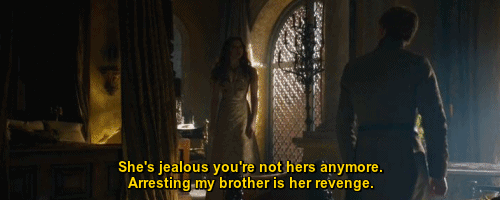
Yeah, no, just scream at your abuse victim…this is a much better solution.
Yes, there is the troubling fact that D&D penned Margaery to be a statutory rapist, and apparently didn’t realize it, because Tommen’s abuse is never actually addressed by the narrative. Like, you could make an argument that his suicide was that follow-up, so maybe they did understand; that Tommen was realistically penned as a young, impressionable kid who could not handle losing his abuser, and this was something that might happen as a consequence of that. Yet when you listen to D&D discuss his suicide, here’s what they have to say:
“Meanwhile, while this is happening, Tommen’s alone. This malleable, fragile, devastated child, basically is sitting there without anyone to comfort him, and if [Cersei] had been there, he wouldn’t have gone out that window. She failed him, and she alone failed him here.” –Dan Weiss
Then Benioff jumps in to talk about how Cersei’s children are the one thing that humanized her, because idealized motherhood isn’t sexist at all. But still, we are given the impression that despite their acknowledgements of Tommen’s impressionable nature, it is merely his tipsy mother to blame rather than, like, his rapist.
For this reason, when talking about Margaery as a feminist character, I’m truly at a loss. It’s great that she’s smart? But why the heck is she presented to us in a remotely positive light?
However, even ignoring that she’s accidentally a rapist (oh yay, she and Yara share in that girl power!), this season, her intellect was punted out the window too. Now, it is important to note that she’s not acting in her self-interest: her sole motivation was to save her brother from his [implied] torture. This wasn’t to improve her House’s position; this wasn’t to help her standing—it was all because Loras told her that he wanted “it” to stop, and she was going to make that happen.

This would have been fine, except the path she took to do so was utterly nonsensical. Rather than trying to even get time with her Grandmother to plan something, she immediately jumped to fake piety, selling out Loras’s claim, persuading Tommen to…establish a religious oligarchy?? (it was never made clear what this alliance meant past “the Kingsguard wear seven-pointed stars”), and despite all that, she couldn’t even get the dude out on bail. Also, she was forced to have a septa follow her around everywhere for her crime of perjury. Keep in mind that at the same time, Cersei, who was still accused of high treason, was prancing around with a reanimated corpse, crashing Small Council meetings, making out with her brother (this was still literally one of her charges), and killing Faith Militant members without anyone saying boo. Marg, honey, your deal really sucked.
Why did Margaery ask the Tyrell army to stand down when she did? Because they probably could have freed Loras right there and then. Even if we want to pretend that she truly thought the fake-piety-amorphous-Faith-union was the best path to saving her brother, you’re telling me that once she stepped out into the sunlight and saw largest army in the Seven Kingdoms, being led by her father, standing right there, it wouldn’t have maybe changed her read on the situation?

There’s only like…40 Faith Militant
Also not to bring up the books, but in the books, just one of Mace’s bannermen marching to the city with his troops convinced the Faith to release Margaery from her prison (yay to Randyll Tarly for doing something other than being a jerk at a dinner table), when she had faced much more serious charges than her show counterpart.
Stepping back and looking at the season as a whole, Margaery was nothing more than a hapless victim. She was imprisoned for no discernable crime, and then came up with a sucky plan to save her brother that only resulted in the power of her House crippled and him mutilated. Then she blew up. And I am told that she’s a very feminist character.
We also have her grandmother, who is unquestionably the official negotiator of House Tyrell despite the patriarchy existing to punish her granddaughter and Cersei. How does she wield this power? By refusing to go to war repeatedly to save the future of her House. The only thing that eventually convinces her is the idea of Margaery also facing a Walk of Atonement. Though at least the walk would have freed her, which is more than Olenna’s plan of doing nothing involved.
Later, Margaery slips her a note that assures Olenna this piety thing is an act, and maybe also a warning, so she high-tails it out of King’s Landing. Then everyone she cares about blows up, so she decides her best course of action is to ally with a group of murderous women who just slaughtered their own House. Or maybe it was because of the possibility of an alliance with Dany? Who knows, but at least she sasses Obara for “looking like a boy” so that we know she’s empowered. And she wants revenge, which is being sold to us as empowerment too. Too bad she didn’t have this fighting spirit during a time where it might have helped anything.
While we’re in Dorne, please don’t make me rehash the awfulness that is the petty, catty Sand Snakes and Ellaria. I was confused why anyone talked about how great it was that they “took on the patriarchy,” when these women were A.) clearly presented to us in a bad light, and B.) embracing toxically patriarchal values by murdering men who didn’t mean their “strong” standards, aka out for blood and showing a refusal to make any sort of peace.

I would also prefer not to yet again dredge up my issues with how Gilly and the women of Horn Hill were penned. Yeah, it’s hard not to agree with someone yelling at Randyll Tarly. But it’s as utterly out of place and pandering as if bell hooks was zapped into Meereen to read Tyrion passages of Feminist Theory: From Margin to Center. It’s not magically ~feminism~ if the actual condition of women in the established setting is ignored, or if the setting is too inconsistent for there to *be* a condition of women.
Speaking of pandering, we have Lyanna Mormont. Thanks to D&D’s insightful “Inside the Episode” commentary, we know that they thought it would simply be a “fun” scene to watch to have a 10-year-old girl be a tough negotiator. But despite intent, she actually was a bit of a joy to see on our screen. With her deeply rooted sense of authority and a refusal to be infantilized, she’s the closest thing to Arianne Martell we’ve had on our screens. The only issue is that this is the same person who gave Stannis a middle finger because she only serves a STARK, yet then dismisses Jon and Sansa’s request for help (it’s a Snow and a Bolton, apparently), even after they tell her that Rickon [STARK] is being held hostage. She only agrees to join their cause when Davos mentions zombies. However, the next scene where she speaks, she’s shaming other Northern Lords for not joining the Starks.

But… You just…
I like the concept of Lyanna, however with her execution, it’s clear that there was no thought put into her character past “wouldn’t it be fun if…”
A similarly shallow line of thought seemed to be followed for Melisandre this season. “Wouldn’t it be cool if we revealed that she was old?” Would it? Do I really need to get into the sexist implications of sagging tits being framed as a Shocking™ moment (why was she naked?). Also why did this matter in the slightest? The only thing it seemed to influence, forgive me for suggesting, is a notable dialing back in her character’s overt displays of sexuality. She spent a good part of Season 5 sexually harassing Jon, but now that the audience knows her hot bod is an illusion, she’s desexualized?
There’s also the fact that Melisandre was pretty much shunted to the side for the entire season. It was Davos’s idea for her to resurrect Jon, and when she did so successfully, the people thought of him as a god. Why would they give two craps about the sorceress? Then she sat quietly through a war council meeting. Then she was basically off the screen. I guess it’s nifty that there is a woman with *magic powers*, but given that she only applies it when prompted by men is a bit… There’s a word for it. “Sexism.”
I’ll be perfectly honest: I almost forgot about Meera Reed this season. She uh…was sad about her brother for a scene until Leaf told her that she needed to stop it because Bran needed her. She did pretty well holding her own against zombies. She’s not not feminist, so much as she is a non-entity.
That just leaves Missandei. I’m not going to lie: I found it very refreshing and yes, feminist, when Missandei had the following exchange with Tyrion:
Missandei: How many days were you a slave?
Tyrion: Long enough to know.
Missandei: Not long enough to understand.
Unfortunately, that’s kind of it for Missandei this season. She gives public support for Tyrion’s crappy plans in front of other former slaves, and then fades to the background to be a prop for thinly veiled rape jokes, while Grey Worm is the only one who [rightfully] continues to challenge him.
Tyrion: Let’s play a game. You don’t play games, either one of you, ever
Grey Worm: Games are for children.
Missandei: My master Kraznys would sometimes make us play games.
Tyrion: There, that’s a start.
Missandei: Only the girls.
Tyrion: No, no, no. Not that. Of course not that. Innocent games. Fun games. Drinking games.

Not to mention we’re treated to at least four different scenes of Tyrion explaining some concept to Missandei and Grey Worm, be it dragon taming or drinking games, with the tone of a teacher patiently educating the inner-city kids. I *think* it’s supposed to be uncomfortable since his plans still result in the masters attacking, but at the same time it does mean that Missandei and Grey Worm are accorded almost no narrative space of their own; they’re props for that discomfort to play out. Yay.
Aaaaaand then, that’s Season 6! I gotta say, I’m looking for all these “strong women” that are propelling GoT to the status of a “feminist fable,” and I’m simply coming up short. Where are they? Can you help me locate them?

It can’t be all these Women on Top, right?
Because really, all I’m seeing are female characters written by two dudes who don’t seem to be aware of any of the sexist assumptions they’re making in the writers’ room, nor any implications that might come out of it. Why did the Waif hate Arya? Why did Theon argue for Yara at the kingsmoot? Why was Sansa’s path to empowerment told through rape (especially when that path had already been established in Season 4)?
And all I’m seeing are critics who think a woman giving an order is inherently feminist, without bothering to listen to what that order actually is.
The final part of this series will involve tackling the concept of “violence = empowerment,” and why this is not the pathway to a feminist narrative.
Images courtesy of HBO
The post The Fallacy of GoT’s ‘Women on Top’ Part 2: Characters appeared first on Fandom Following.


















































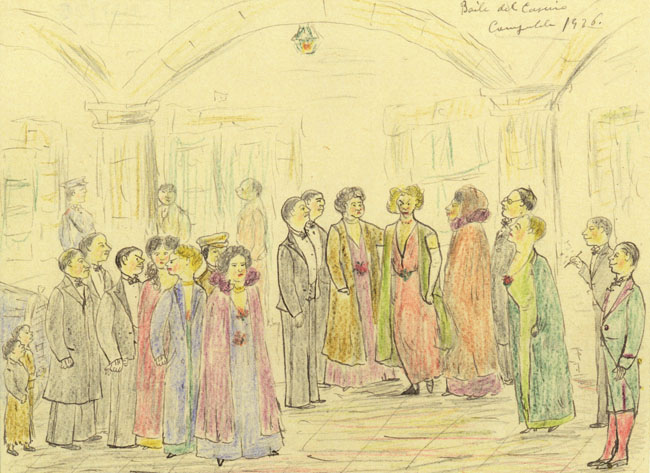
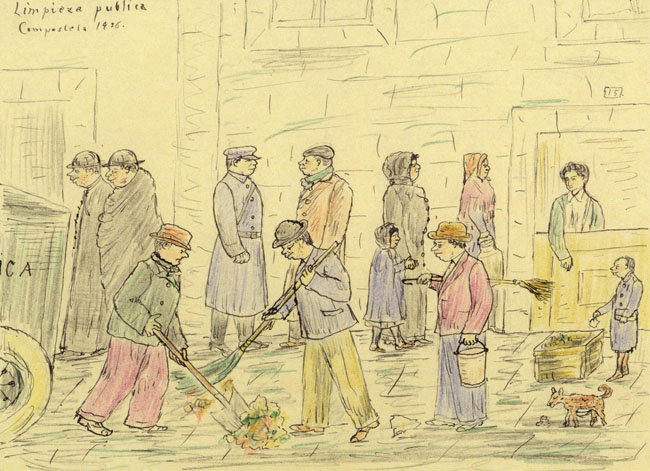
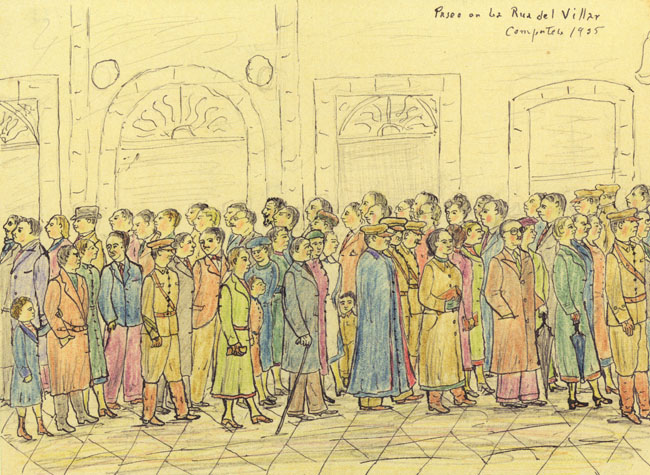
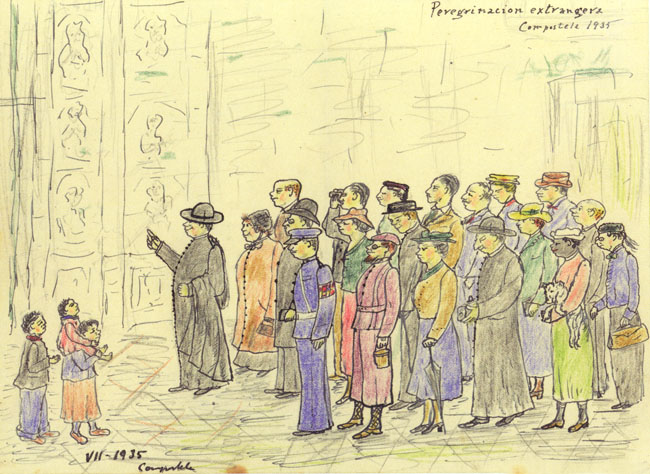
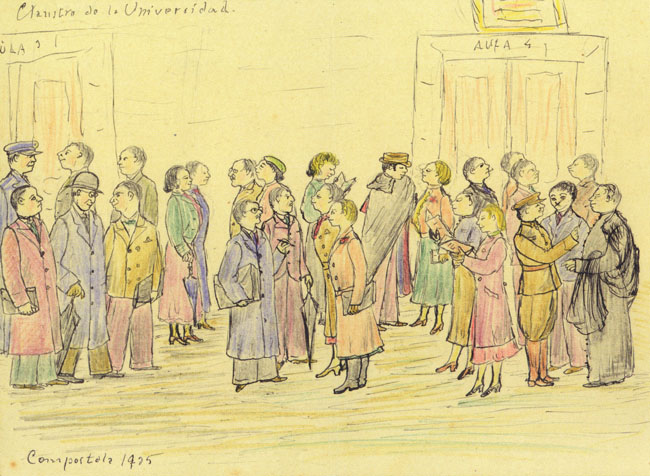





 Kevin Kelly's The Inevitable is available from Amazon.
Kevin Kelly's The Inevitable is available from Amazon.





















